They were the best and the brightest. But, most of all, they believed they were right. Although the scale of disaster was considerably different, the same that was said of those who oversaw foreign policy under Presidents John F. Kennedy and Lyndon Johnson could be said of the Obama administration. But even those sympathetic to President Barack Obama’s foreign-policy instincts, Shadi Hamid argues, will agree that it didn’t quite go as planned. This article originally appeared on The Atlantic.
They were the best and the brightest. But, most of all, they believed they were right. Although the scale of disaster was considerably different, the same that was said of those who oversaw foreign policy under Presidents John F. Kennedy and Lyndon Johnson could be said of the Obama administration.
These were academics, intellectuals, and technocrats who were not only very smart; they took pride in being practical, grounded in reality, and wedded to facts. After the supposed anti-intellectualism and ideological rigidity of the George W. Bush administration, many of us welcomed the prospect of a president who was cerebral and professorial. Even those sympathetic to President Barack Obama’s foreign-policy instincts, however, will agree that it didn’t quite go as planned.
The very notion of “facts” has been demeaned by Republicans, and most of all by Team Donald Trump. As Trump surrogate Scottie Nell Hughes put it, “There’s no such thing, unfortunately anymore, as facts.” In response, Democrats have doubled down on their tendency to wield facts as cudgels, demonstrating their righteousness in the process. It would be a loss, though, if this came to be seen as merely another partisan schism. As it turns out, Obama’s foreign-policy legacy can offer an important window into whether facts—and being “reality-based”—are quite as critical to real-world policy success as we might like to think.
Unlike Kennedy and Johnson, Obama was very much the technocrat-in-chief, setting the tone for the people he would surround himself with. His intelligence was generally in little doubt. During his eight years in the Oval Office, the president was an almost unbelievably voracious reader, devoting around an hour on most days to books of history, philosophy, biography, or even sci-fi novels. But being smart and well-read doesn’t necessarily lead to good judgment or bold vision; in some cases, even, the former can undermine the latter.
“The best and the brightest” entered the American lexicon, with more than a hint of irony, through David Halberstam’s landmark book on the men who dragged America into the Vietnam War. In his foreword to the book, Senator John McCain writes of these men: “They misjudged the world. And, most of all, they misjudged themselves.”Matters of judgment still loom large four decades later. I, or any critic of Obama’s foreign policy, could sit with an Obama administration official, and, even if we agreed on all the facts and specifics of a particular country or conflict, it wouldn’t matter much. Divergences in how people interpret Obama’s legacy have much more to do with fundamentally different starting assumptions about America’s role in the world and even human nature—in other words, the very reasons why we do what we do. In fact, looking back at my own meetings with officials during the Obama era, rarely do I ever recall hearing something and thinking to myself that I had just heard some gross error of fact. This is why I found such meetings so frustrating and circular: The only things we disagreed on were the most important.
For example, I have little disagreement with the technical aspects of the Iran nuclear deal. The problem, well before negotiations even started, was the initial decision to treat Iran’s nuclear program as the top U.S. priority in the Middle East. On Syria, opponents of intervention against the Assad regime would often claim that various military options were prohibitively difficult to implement, and that those who claimed otherwise weren’t military experts. Of course, Obama himself is not a military expert either. Either way, the claim was disingenuous: Senior military officials had readied a military response to Assad’s violation of the “red line” drawn over the use of chemical weapons in August 2013, and with no notable dissent. Ultimately, the divide over Syria was about deeper questions of moral responsibility, America’s role in the world, and whether an intervention would be “worth” the cost (something which, of course, can’t actually be measured). As Steven A. Cook wrote in early 2012 when only around 7,000 people had been killed in Syria: “Is it a morally superior position to sit by as people are being killed rather than take action that will kill people, but nevertheless may end up saving lives as well?”
It was Obama, at the 11th hour, who, coming to his own very personal answer, abruptly reversed course. This, like the decision to prioritize the Iran deal over all else, was no accident of history. There are, in fact, a set of basic, overarching ideas that appear to animate Obama and his most loyal aides, which come through in any number of interviews and profiles. They include what Nina Hachigian and David Shorr call the “responsibility doctrine”—the idea that stepping back allows others to step in and take responsibility for their own region. In the Middle East, though, the success of such an approach depends on having allies that share American interests or American values, when, in reality, most share little of either.Due to the formative experience of the Iraq war, as well as domestic political considerations, Obama hoped to reduce America’s footprint in the Middle East. This meant a general bias toward disengagement, irrespective of whether greater U.S. involvement could produce better outcomes in particular crises (even the Iran nuclear deal was basically about removing the possibility of an American war with Iran). There was also a general discomfort around the direct use of U.S. military force, a discomfort which was as ideological as it was practical.
[Obama] wanted others, friends and enemies alike, to act rationally in what he thought was their own interest.
These starting assumptions seemed colored as much by objective assessments of fact as by Obama’s distinctive—and seemingly well-developed—perspectives around human nature. As Michiko Kakutani notes, Obama has thought deeply about these things: “During [Obama’s] last two years in college, he spent a focused period of deep self-reflection and study, methodically reading philosophers from St. Augustine to Nietzsche, Emerson to Sartre to Niebuhr, to strip down and test his own beliefs.” Some of these views are just as applicable to domestic issues as they are to foreign policy. In Ta-Nehisi Coates’s profile of Barack Obama’s evolution on race, there are a number of recurring themes: a built-in optimism that makes it more difficult to process defeats, or, for that matter, evil; and a set of assumptions about the inherent rightness and rationality of the American people, including his adversaries. As Coates writes, Obama, who experienced relatively little direct racism in his own life, “appealed to a belief in innocence—in particular a white innocence—that ascribed the country’s historical errors more to misunderstanding and the work of a small cabal than to any deliberate malevolence or widespread racism.”
Evil, then, was something outside of history, a history which, Obama liked to remind people, bended toward justice. Obama often seemed annoyed with others’ resistance to this march of historical progress. He wanted others, friends and enemies alike, to act rationally in what he thought was their own interest: Iran, after a deal, would be more likely to play a constructive regional role; Israeli leaders didn’t realize that the Iran nuclear deal was in their own interest, but they’d surely come around; Russia, after aggressively intervening in Syria, would soon come to see the error of its ways (“I think Mr. Putin understands that … with Afghanistan fresh in the memory, for him to simply get bogged down in an inconclusive and paralyzing civil conflict is not the outcome that he’s looking for,” Obama commented).
President Obama also disparaged Arab “tribalism,” a catch-all word that captured not just his impatience with tribalism, narrowly understood, but the uncontrolled passions of ideology, identity, and religious fervor. The Atlantic reported that Obama was known to say to aides: “If only everyone could be like the Scandinavians, this would all be easy.” But no one, apparently even Scandinavians, could be like the Scandinavians.
Obama’s cool rationalism and emotional remove could easily devolve into disdain, whether disdain toward Middle Eastern allies or disdain toward Donald Trump and his electoral prospects. As his tenure wound down, Obama seemed as resistant as ever to adapting his views, despite everything that had happened under his watch, whether at home or abroad. The president believed that history moved with him, but in an era of resurgent ideology and nationalism, he was the one who increasingly seemed like an outlier, out of place and out of time.
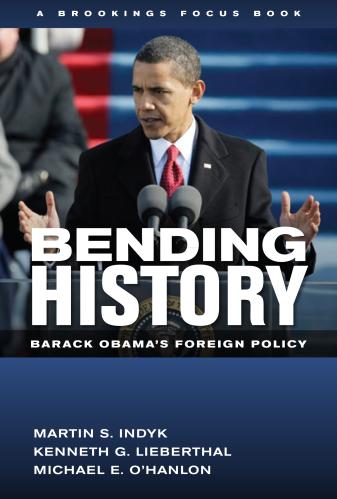
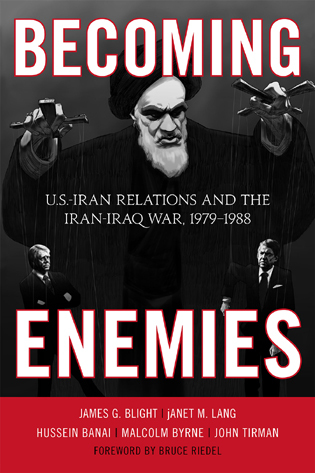

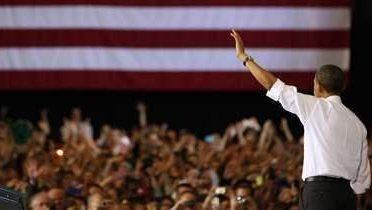
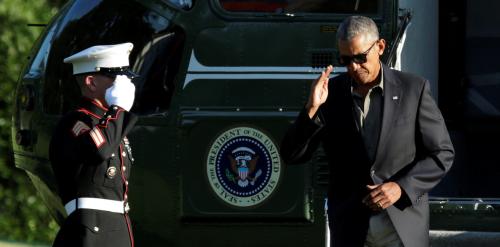
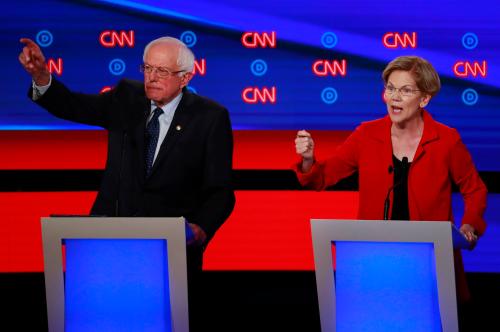



Commentary
Obama and the limits of “fact-based” foreign policy
January 19, 2017